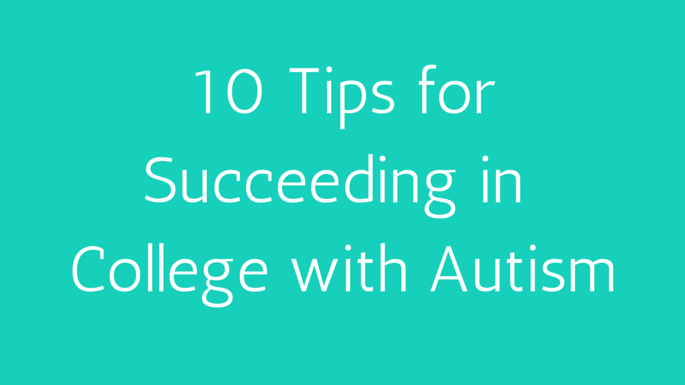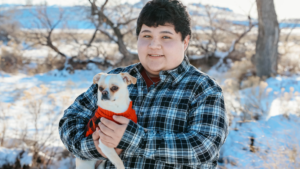Do you agree? What would you add to this list? Tell us in the comments!
- Life is unfair at times but you should never let yourself turn into the victim.
Don’t pity yourself or let others pity for you. Be independent and show what your strengths are while you working on your weaknesses. - Spread awareness in everything you do.
The fact is most college students will not have autism, or rather a disability at all. Be informative, use social media and word of mouth as much as possible to get the word out. This doesn’t mean primarily towards autism either. Spreading awareness of many different things you are aware of can lead to a more accepting and understanding environment.  You’re paying for the education, get every accommodation you need!
You’re paying for the education, get every accommodation you need!
Regardless if your school is disability friendly or not you have the right to reasonable accommodations. Most colleges just get by with the minimum. Make a stand; learn what reasonable accommodations not only you should receive but what others should be getting too. You could lead to helping a future student with autism have an easier experience by being proactive. If you are not sure what accommodations you should be getting discuss it with an elementary/high school advisor who did your IEP for grammar/high school. Early Intervention is key not only when you are young, but in maximizing every aspect of your life. Research, research, research!- Conquer your fears early on.
One of my favorite poems of all time by poet Marianne Williamson starts out with this line, “Our deepest fear is not that we are inadequate, our deepest fear is that we are powerful beyond measure.” As someone with autism, we all have our focus on certain things that can be seen as strengths. At the same time we also have those things that we focus on that we can be afraid of. The fear of change is the biggest fear that relates to someone with autism in regards to going to college. There are too many what ifs and this is why many young adults tend to opt to live at home rather than go to the college dormitories, especially early on. The faster you can conquer these fears, the faster you can focus on your main objectives and goals out of your college education. - Be proud of who you are!
It is something that can be forgotten very easily. To get into college is a tremendous accomplishment. For someone with autism to get to college is even more momentous of an occasion. It gives tremendous hope to others so always be willing to share your stories, you never know whose listening. - Always take notes.
This is for both inside the class room and out. It is sometimes very difficult to read the perceptions of other people. From one of my last posts called The Blind Side, I mentioned I sometimes have the ability to not understand views from other people’s perspectives. If you become more calculated in your approach to college, and try to take a deeper understanding of others it can help in your overall social development. Have a little notebook that you take place to place to make sure you have the ability to write down these notes and come back to them later to reflect. - Don’t let clutter bother you!
Recently I’ve learned in one of my business classes about the concept of “cognitive dissonance,” meaning having too many thoughts in your mind at one time. Stress can be overbearing so attempt to find a place on campus where you feel most at peace with. This goes with noise also. In college there can be a lot of this whether it is in the dorms, class rooms, or out somewhere on campus. If you want to avoid noise also consider noise canceling headphones. - Exercise!
This is a more general concept but for me, I always had difficulty with hand eye coordination and my motor skills in general so I knew being physically fit was important to my overall development. Autism can affect motor skills so for some this tip will be more useful than to others. Find a daily regiment where you can contribute at least 30 minutes of physical activity to your schedule. - Find out what type of learner you are!
Personally, math and pictures have always been my first language and words have always come second to me. My thoughts in my mind run like videos. This tip helps with the above tip in regards to accommodations. If you know what you are best at, maybe you can find a way to negotiate with your professors on ways to make the class more suits yourself. - Communicate as best you can!
Some of the easiest problems to conquer in college are caused by a lack of communication. If you are not comfortable in doing so, make sure someone else around you knows how to help you with this. Independence is not learned over night but it’s almost impossible to get through college with your family calling all your shots. All disability support offices/services will stress the concept of independence to you and therefore you need to make steady goals and steps on how to overcome any dependency issues you may have.
What would you add to this list? Tell us in the comments! If you liked this blog you may also like…
11 Tips Students with Autism Should Ask Their College
Disability Advocate Contributes in a Guide to Help With Autism & College
















